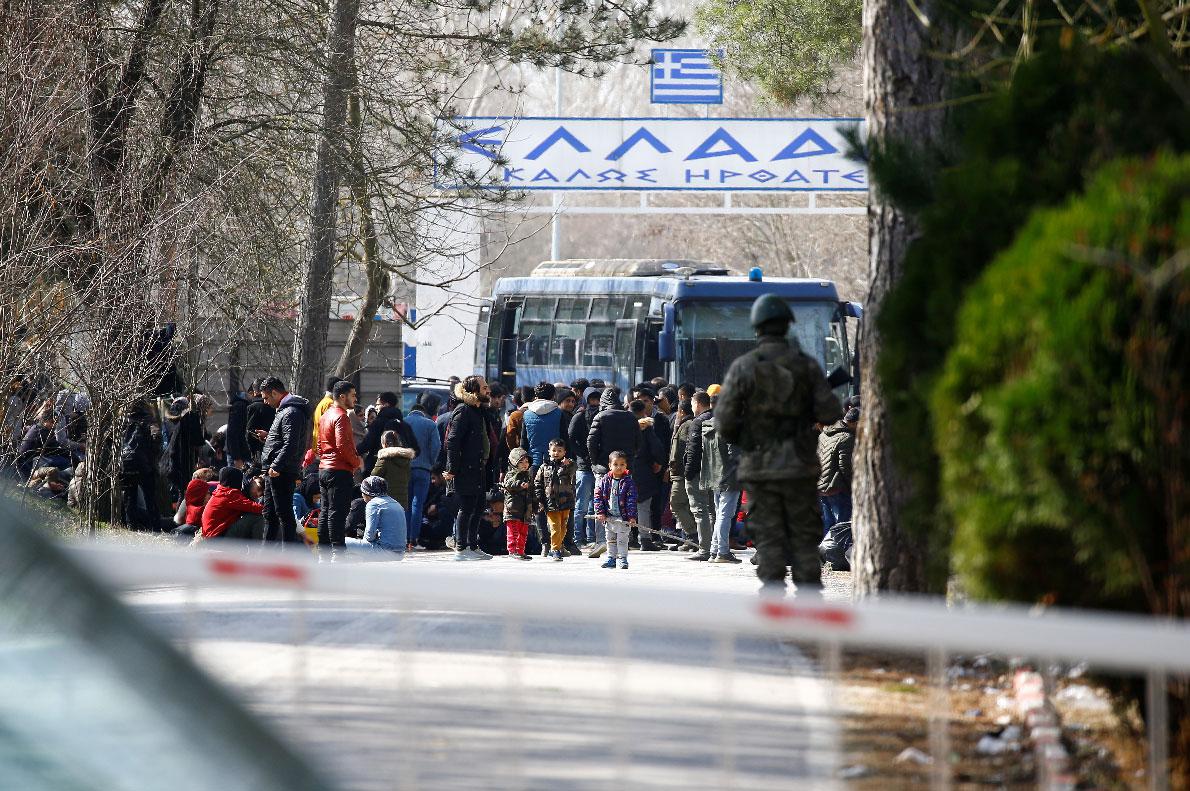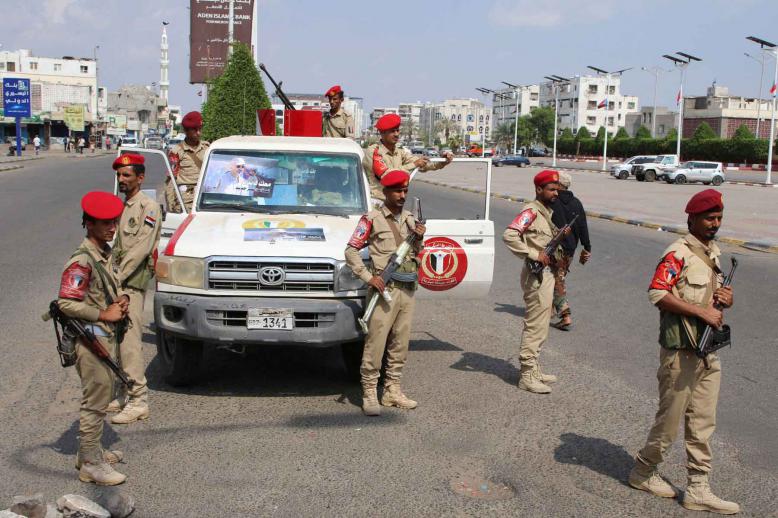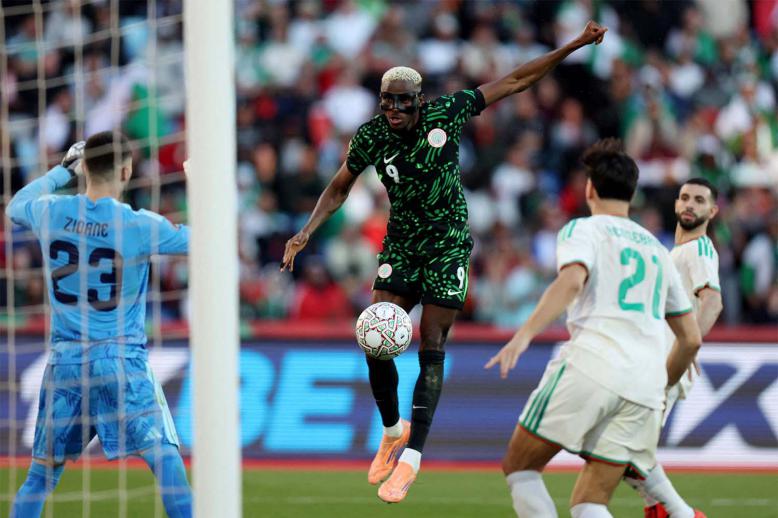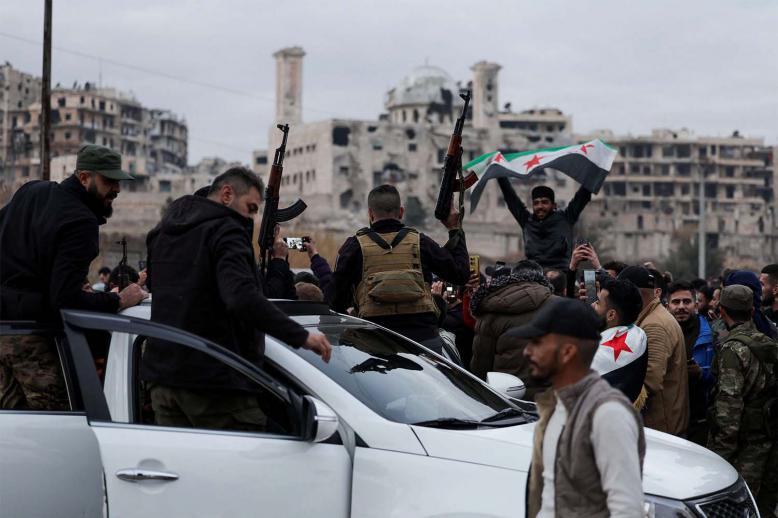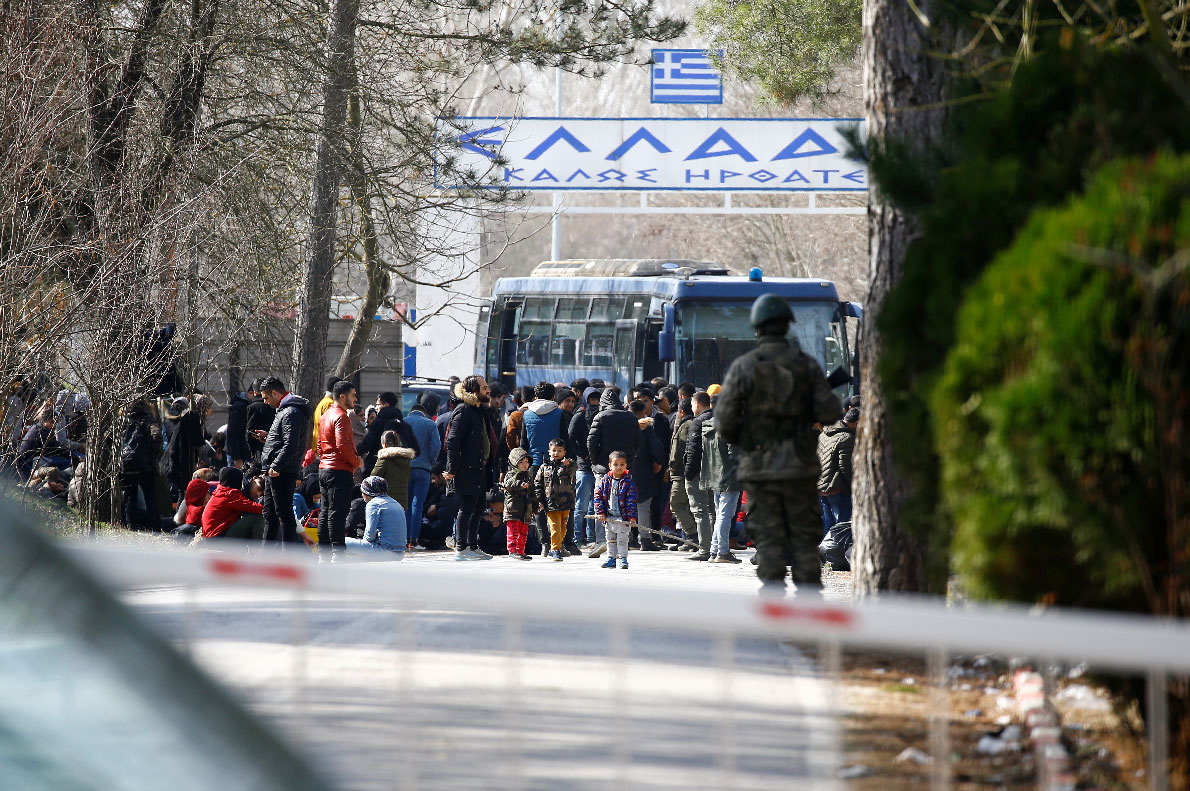Turkey ups pressure on West as Idlib violence rages
ANKARA - NATO envoys were holding emergency talks Friday at the request of Turkey following the killing of 33 Turkish soldiers in northeast Syria, as scores of migrants gathered at Turkey's border with Greece seeking entry into Europe.
Groups of migrants in Turkey had headed toward its borders with Greece and Bulgaria on Friday, after a senior official told Reuters news agency on condition of anonymity that Ankara will no longer abide by a 2016 EU deal to stop refugees from reaching Europe.
Late on Thursday, Turkey said 33 Turkish soldiers were killed in an air strike in Syria's northwestern Idlib region. The air strike by Syrian government forces marks the largest death toll for Turkey in a single day since it first intervened in Syria in 2016. It’s a major escalation in a conflict between Turkish and Russia-backed Syrian forces that has raged since early February. At least 54 Turkish troops have now been killed in Idlib in that time.
After the soldiers' deaths, Turkish police, coastguard and border security officials were ordered to stand down on refugees' land and sea crossings towards Europe in anticipation of the imminent arrival of refugees from Idlib.
Omer Celik, spokesman for President Recep Tayyip Erdogan's ruling party, said Turkey was “no longer able to hold refugees” following the Syrian attack — reiterating a longstanding warning from Erdogan that his country could not cope with the arrival of more people fleeing the conflict.
Some one million civilians have been displaced in Syria near Turkey since December as Russian-backed Syrian government forces seized territory from Turkish-backed Syrian rebels, worsening an already dire humanitarian situation. Turkey already hosts some 3.7 million Syrian refugees displaced during the nine years of civil war in Syria.
Under a 2016 deal, the European Union has provided billions of euros in aid in return for Ankara agreeing to stem the influx of migrants into Europe.
Erdogan has nevertheless repeatedly threatened to "open the gates" for refugees to travel to Europe, using the reluctance to deal with a further influx of people as a bargaining chip in several disputes with EU states. Upping that pressure now could draw Western powers deeper into the standoff over Idlib and give Turkey some leverage in international arenas such as the UN Security Council.
The Security Council has been toothless throughout Syria's war due to regime ally Moscow's veto power. Russia has sunk at least 14 draft resolutions on Syria throughout the duration of the war. Turkey may be hoping to pressure its Western allies with its latest move to up the flow of refugees into Europe, which in turn may lead to greater Western pressure on Russia.
NATO crisis
A government official told the Associated Press that Greece, the main target for migrants trying to enter Europe, has beefed up border security “to the greatest possible degree ... on land and at sea," and that Athens is in constant contact with the EU and NATO following the developments in Idlib. The official spoke on condition of anonymity as they were not authorized to speak to the press on the record.
In Bulgaria, Prime Minister Boyko Borissov said that “army units, national guard and border police staff have been urgently deployed at the border with Turkey to beat off a possible migrant influx.”
Borissov said that large groups of migrants were gathering by the border near the Turkish city of Edirne. He expressed concern that Turkish border police were moving away from the border.
But EU spokesman Peter Stano said the bloc was waiting for an official analysis of reports about migrant movements before acting. He said Turkey had not officially signaled that it was changing its migrant policy.
“We expect Turkey to uphold its commitments," Stano said.
EU foreign policy chief Josep Borrell warned that “there is a risk of sliding into a major open international military confrontation. It is also causing unbearable humanitarian suffering and putting civilians in danger.”
In a tweet, Borrell called for the escalation around Idlib to “stop urgently,” and underlined that “the EU will consider all necessary measures to protect its security interests. We are in touch with all relevant actors.”
Meanwhile, NATO Secretary-General Jens Stoltenberg said in a statement that an ambassadors' meeting was being held at Turkey's request under Article 4 of NATO’s founding treaty, which allows any ally to request consultations if it feels its territorial integrity, political independence or security is threatened. It's only the sixth time that Article 4 has been invoked in the alliance's 70-year history.
Turkey’s invasion of the north of Syria — along with the criticism and threats of sanctions brandished by fellow allies at Ankara over the offensive — has come close to sparking a major crisis at NATO.
France in particular has tried to launch debate on what Turkey’s allies should do if Ankara requests their assistance under Article 5 of the Washington Treaty — which requires all allies to come to the defense of another member under attack — but that discussion has not happened.
The allies are extremely reluctant to be drawn into a conflict at Ankara's behest, particularly because Erdogan has used up a lot of good will by testing the patience of his fellow NATO members - especially Turkey's regional political rival Greece.
The Syria offensive comes on top of tensions over Turkey's purchase of Russian-made S400 missiles, which threaten NATO security and the F-35 stealth jet. Erdogan also purged thousands of Turkish military officers following the failed coup in Turkey in 2016 and some have sought, and been granted, asylum in Europe.
'Too heavy for a single country'
Apart from providing some aerial surveillance over Syria, NATO plays no direct role in the conflict-torn country, but its members are deeply divided over Turkey’s actions there, and European allies are worried about any new wave of refugees arriving.
Nevertheless, a Turkish official told Reuters that the burden of hosting refugees "is too heavy for any single country to carry".
The Turkish president has leaned heavily on the presence of refugees in Turkey for diplomatic leverage. Last September, he threatened to allow Syrian refugees to leave for western Europe unless a so-called “safe zone” for internally displaced citizens was established inside Syria.
“We will be forced to open the gates. We cannot be forced to handle the burden alone,” he said at the time, accusing the EU of failing to share the burden of caring for those displaced from Syria.
The following month, furious at EU countries describing his military incursion into northern Syria as an invasion, Erdogan again threatened to let Syrian refugees flood Europe.
"Hey, European Union!" he said. "Come to your senses. I repeat: Don't call this an invasion, it's not. If you persist, we will open the gates and send 3.6 million refugees your way."
Erdogan’s threats have not been solely about refugees. In November, angered by an EU decision to impose sanctions on Turkey over its drilling for gas in the Mediterranean off the ethnically divided and Turkish-occupied island nation of Cyprus, he warned he could send Europe Islamic State group prisoners held in Turkey.
“You should revise your stance toward Turkey, which at the moment holds so many IS members in prison and at the same time controls those in Syria,” he said. “These gates will open and these IS members who have started to be sent to you will continue to be sent. Then you can take care of your own problem.”
Turkish Foreign Ministry spokesman Hami Aksoy warned the movement of migrants to the West could continue if the situation in Idlib deteriorated.
“Some asylum seekers and migrants in our country, worried about developments, have begun to move towards our western borders,” he said. “If the situation worsens this risk will continue to increase.”
Turkey's communications director meanwhile said Ankara does not believe its decision to allow some of the millions of migrants it hosts to cross into Europe will have an impact on its ties with the West.
In comments to reporters, Fahrettin Altun said that migrants were now Europe's and the world's problem too, claiming that Ankara had "no choice" but to ease border controls after not receiving enough support in hosting Syrian refugees.


